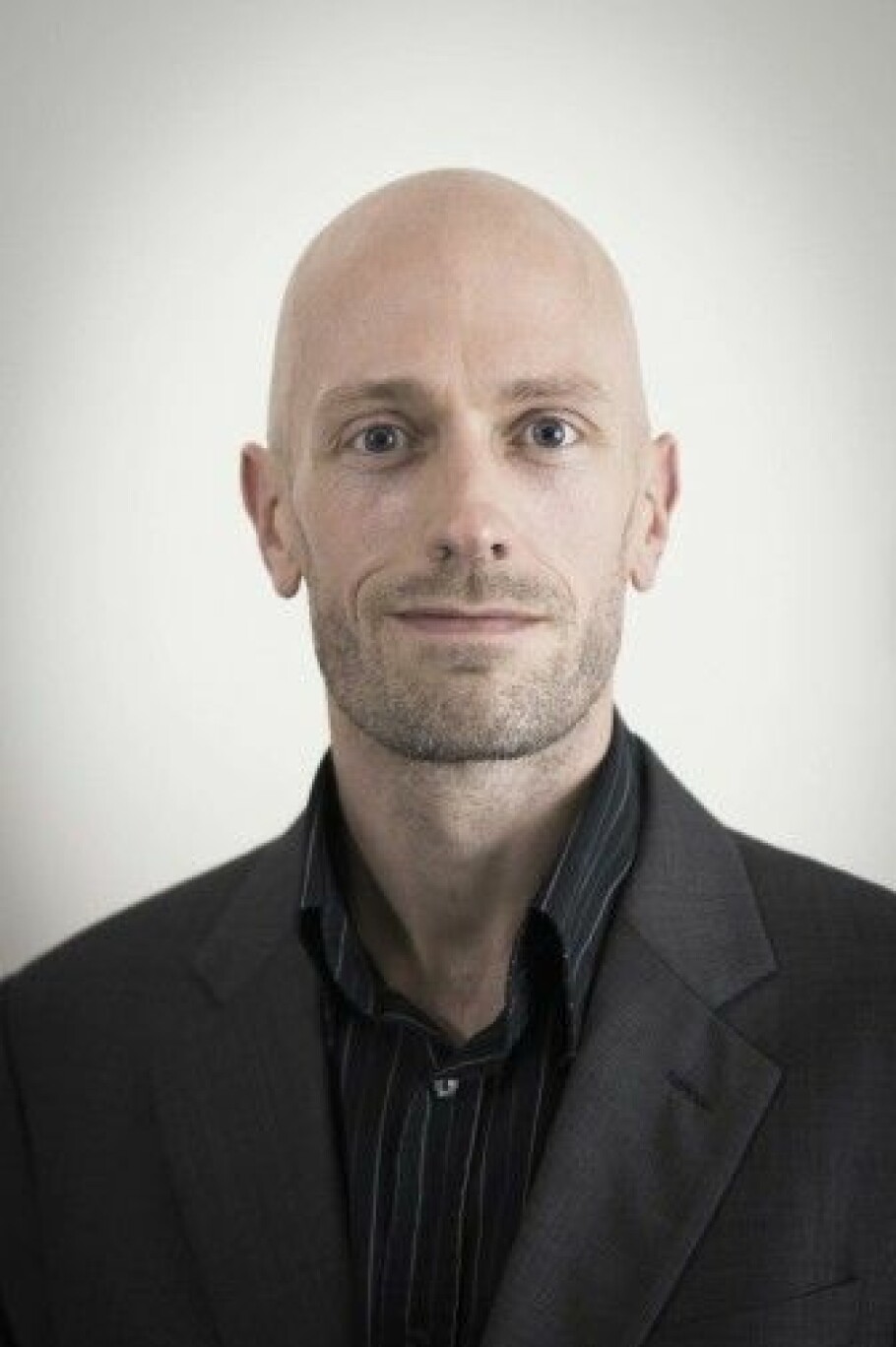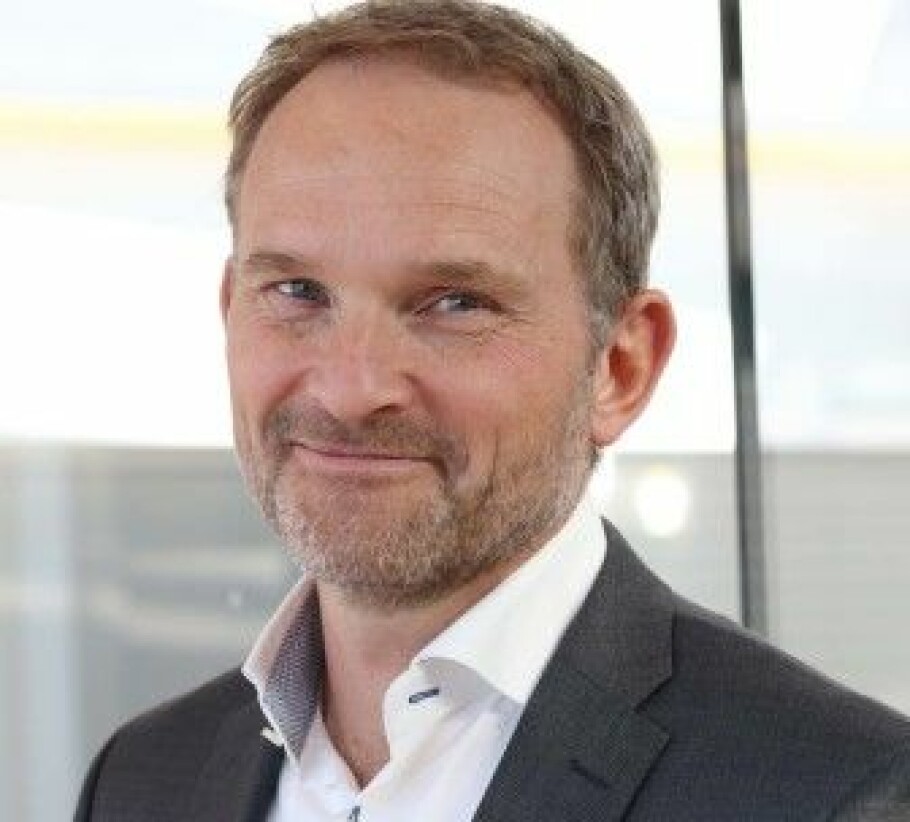
Big Brother is watching you - and makes you behave differently
How free are you really if someone is always watching what you do? Digital tracking is a problem even if you have nothing to hide.
At least that’s the opinion of Henrik Skaug Sætra, associate professor at Østfold University College and a researcher for Proba Research.
“Being observed actually influences our actions. If someone is watching us, we lose some of our freedom,” he says.
Data ethics
Sætra is part of a growing academic community that discusses computer ethics on the level of principle. Whereas daily media reports focus more on how new technology can help more people, these researchers point out that although it can help, technology also brings with it some ethical problems.
“Sometimes we become a little blind to the negative aspects. In the journals I write for, a lot of people point out the dangers of technology,” says Sætra.
In the journal Technology in Society he writes about freedom under the watchful eye of Big Brother. How free are you really if someone is always observing you?

Electric meter and refrigerator next
“It's about more than just what you do on your computer,” says Sætra.
“All of a sudden on my phone I hear, "It will take this long to drive to where you’re going now." It knows I'm taking my son to training right then. GPSes are everywhere. At home, pretty soon your refrigerator and washing machine will be connected to some app, and smart electric meters will be able to tell when you’re home and in which room,” he says.
“Maybe you have a pulse watch that sends information to Garmin, Strava or Endomondo, and then you share it on Facebook. Even pregnancy tests come with an app. It’s completely unnecessary, but companies want access to your information."
A small, private room
Sætra talks about a liberal defence of privacy. While liberal thinking is often about businesses being free to innovate and create new things, he is more concerned that everyone needs the freedom to be able to be alone.
“In order for people to be themselves and grow, they need a small room where no one sees them. Where they are free to develop without worrying about what others are thinking about what they’re doing,” he says.
There is always a danger that data may fall into the wrong hands. Criminals can hack you. Facebook can sell your data to others. The state collects information. Maybe you trust the people in power today, but you don't know who will get the information in the future.
The information can be used for more and more purposes. Deep personality profiles can be used to influence you.
Changes behaviour
And actually, being watched makes you behave in a different way than you would otherwise. Sætra uses staying at a hotel with your spouse as an example. Imagine that the hotel is video-monitored to make you safer.
“You behave a little differently in the hotel room,” he says and mentions shame and shyness.
You not only avoid acts that are illegal, but also what you think others may find stupid or that you are ashamed about others knowing or seeing or hearing. Hardly any sex takes place in a hotel room if you know someone is monitoring you, even though you’re sure they’ll never use the footage for anything.
Other examples might include being careful what movies you watch, what opinions you express or what people you meet if you know someone is watching you and that you’re doing something that is unpopular.
Eyes on poster
Sætra points to research that was published as early as in 2006.
“In one experiment at a workplace there’s a box where everyone pays for coffee and snacks. You can take as much as you want and pay as much as you want. One location had a picture of nature behind the box, and another location had a poster with two eyes on it. People gave a lot more in the situation where they unconsciously perceived that they were being observed,” says Sætra.
He doesn’t disagree with the fact that society benefits from a lot of the information that is collected:
“When Google Maps knows two seconds after a car crash that ‘there’s a traffic slowdown here; you should take another route,’ I’m not saying that society is only losing something by this technology. But we have to be aware that while there’s a lot to gain from gathering data, we also lose something,” he says.
Fewer life experiments
Welfare technology is an area where it’s easy to see that you can help more people more effectively.
“If we hear that technology makes people with dementia happier, we sometimes get a little blind to other aspects”, says Sætra.
“Loss of privacy means that in the long term we’ll have slightly less diverse citizens. John Stuart Mill's experiments in living are becoming a little less common, experiments that society would eventually benefit from. If we set up utility against freedom, nothing says that utility will always win out,” he says.
You can read more about John Stuart Mill's experiments in living in this excerpt from his 1859 book On Liberty.
Put down the phone
Sætra encourages people to think before sharing their information with just any type of service that wants it. It’s easy to approve such requests, because they give you something that you benefit from. But is it right, for example, for your child’s sports team to share information on Facebook, requiring that everyone has to log in to get the information? Should schools create parent groups on Facebook?
“Download your browser’s privacy extensions. Take a walk in the woods occasionally and leave your phone at home rather than look at other people's nature pictures on Instagram. Your Fitbit won’t be counting your steps and you won't earn any premium. But your life won’t be the worse for it,” says Sætra.

Most find it fine to share data
The Norwegian Directorate of eHealth works with data that may be sensitive, but that many people are still fine with sharing. Strategy Division Director Karl Vestli believes that easier access to health data has a lot benefits for both the community and the individual.
“A survey we conducted shows that more than nine out of ten Norwegians think it's OK for their own health data to be used to develop new drugs, new technology and medical devices,” he says.
Vestli does not talk about the freedom to be at peace, but that privacy concerns should be a part of every step in the development and use of information technology.
“Health information is necessary to provide good health care to the individual, and it needs to be stored in such a way that it’s easily accessible only to those who need it, such as in an emergency,” he says.
References:
Henrik Skaug Sætra: Freedom under the gaze of Big Brother: Preparing the grounds for a liberal defence of privacy in the era of Big Data, August 2019, doi: 10.1016 / j.techsoc.2019.101160
Henrik Skaug Sætra: The tyranny of perceived opinion: Freedom and information in the era of big data, Technology in Society, published November 2019, doi: 10.1016 / j.techsoc.2019.101155
Melissa Bateson, Daniel Nettle, and Gilbert Roberts: Cues of being watched enhance cooperation in a real-world setting, Biology Letters, June 2006, doi: 10.1098 / rsbl.2006.0509
———






























